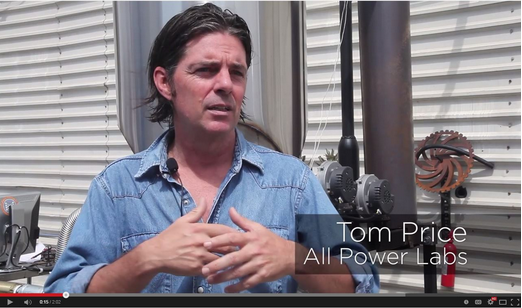An innovative American company called All Power Labs has a creative approach to tackling the challenge of energy poverty, one that has turned existing ideas about development aid and manufacturing jobs on their head.
Tom Price, Director of Strategic Initiatives for All Power Labs, heads manufacturing operations in a location very few would associate with manufacturing jobs: Berkeley, California. But despite this unique location, the Bay Area headquarters is home to a growing manufacturing hub, building power generators that run on waste biomass. These mini power plants -- ranging from 18-100 kilowatts -- are exported to 40 countries around the world where locally available waste biomass like coconut husks, wood chips, and corn cobs are used to produce electricity in areas where energy poverty is a big challenge.
It's companies like All Power Labs that are critical to achieving President Obama's vision of "Powering Africa." In fact, Power Africa's Beyond the Grid initiative is meant to do just that. That's part of the reason why one of All Power Labs' partners, the Kumasi Institute of Tropical Agriculture, was named one of the 22 winners announced by Power Africa's "Off-Grid Energy Challenge" last fall.
Tom took us on a tour of their operations to see how All Power Labs is able to help to end energy poverty in Africa -- you watch the tour here -- while creating manufacturing jobs in California. It turns out the company currently employs 40 people with approximately $5 million in sales revenue each year. These are numbers that are likely to grow thanks to a $2 million grant from the California Energy Commission.
But despite their grant awards, direct investment has yet to flow from Power Africa into All Power Labs. And without a transparent means of assessing how much money is being invested in companies like these compared to large scale dirty power plants, it's impossible to assess whether the administration has its priorities straight when it comes to clean energy access.
But after visiting All Power Labs, there's one thing we know for sure: it's companies like these that can and will help lift hundreds of millions out of energy poverty -- if they receive investment. It's high time Power Africa stepped up to the plate and created a few homegrown jobs in the process.
